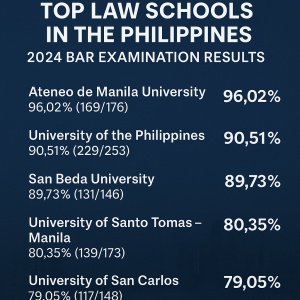Philippine factory growth slows to two-month low in February
March 3, 2025
In a broader business context, this slowdown provokes a critical examination of the challenges that Philippine manufacturers may face amid ongoing economic fluctuations. The drop in new orders not only affects short-term production rates but may also impact long-term growth trajectories for the sector. Analysts suggest that the manufacturing industry must prepare for potential headwinds, including inflationary pressures, rising costs of raw materials, and the unpredictability of global supply chains, all of which could further complicate recovery efforts. The expectation for manufacturers is to innovate and explore efficiencies that could mitigate these pressures, positioning themselves to rebound as consumer demand stabilizes. As the sector navigates these challenges, stakeholders will be eyeing upcoming months closely, anticipating whether this downturn is merely a temporary adjustment or indicative of a sustained slowing trend.
Source: (mb.com.ph)
Philippine central bank adopts cautious approach to rate cuts amid steady inflation
February 5, 2025
The decision to consider easing policy rates is significant in light of the Philippine economy’s current climate, as corporate investments and consumer spending continue to show signs of recovery post-pandemic. A rate cut could lower borrowing costs, encouraging both businesses and consumers to spend and invest more freely. However, the BSP’s cautious stance reflects a broader awareness of global economic uncertainties and potential domestic challenges that could impact inflationary pressures in the near future. Stakeholders in the business community will be closely monitoring the BSP’s actions, as these decisions could shape the competitive landscape for various sectors, influencing everything from lending practices to investment strategies.
Overall, the BSP’s careful deliberation underscores its commitment to maintaining a stable economic environment while addressing the evolving dynamics of inflation. As businesses prepare for the potential implications of monetary policy adjustments, the focus remains on how these changes could stimulate growth or present challenges in an ever-changing economic landscape. With key indicators showing promise, the upcoming February meeting will be pivotal in determining the direction of the Philippine economy in the months ahead.
Source: (reuters.com)
Philippine authorities arrest over 400 individuals in cybercrime crackdown
March 3, 2025
The crackdown reflects a broader government initiative aimed at mitigating the rising tide of cybercrime, which has increasingly become a thorn in the side of legitimate businesses in the country. The proliferation of online gambling and scams not only undermines consumer trust but also threatens to tarnish the Philippines’ reputation as a growing hub for technology and digital business processes. This situation presents both opportunities and challenges for local companies; while the regulatory tightening may impact existing businesses, it could also foster a more secure environment for trustworthy enterprises to thrive. As the government intensifies its enforcement efforts, stakeholders in the tech and business sectors must adapt to a landscape that demands stricter adherence to laws and regulations, ensuring that they are equipped to navigate the complexities of operating in an evolving market space.
Source: (apnews.com)
Philippine gambling revenues projected to rise by 17% in 2025
February 26, 2025
In the context of the broader economic landscape, the growth of the gambling sector is expected to contribute significantly to the Philippines’ overall economic recovery post-pandemic. With the Asian gaming market witnessing a resurgence, the Philippines stands to benefit from its strategic location and ongoing investments in infrastructure, including transportation and tourism facilities. As regulatory frameworks evolve to support innovation while ensuring responsible gaming practices, stakeholders within the industry are likely to find new opportunities for collaboration and expansion. With major integrated resorts like Okada Manila and Solaire Resort and Casino leading the way, the country’s competitive gaming landscape is set to become even more dynamic, reinforcing the Philippines as a premier destination for gaming and entertainment in the region.
Source: (reuters.com)
Philippine government considers P200 daily wage hike amid inflation concerns
February 1, 2025
In the context of ongoing economic recovery efforts post-pandemic, the government faces the delicate task of balancing the needs of employees with the sustainability of small businesses. While a wage increase could empower workers and potentially stimulate consumer spending, there are concerns that it may strain small and medium enterprises that are still navigating a challenging economic landscape. The government is tasked with ensuring that such an increase does not inadvertently lead to further inflation, complicating the financial environment for both workers and business owners. Analysts suggest that a carefully phased approach could mitigate adverse effects, allowing businesses time to adjust while still providing necessary relief to employees. The outcome of this deliberation will have significant implications for the overall economic health of the country, influencing everything from consumer confidence to business operations and job creation.
Source: (qa.philstar.com)





